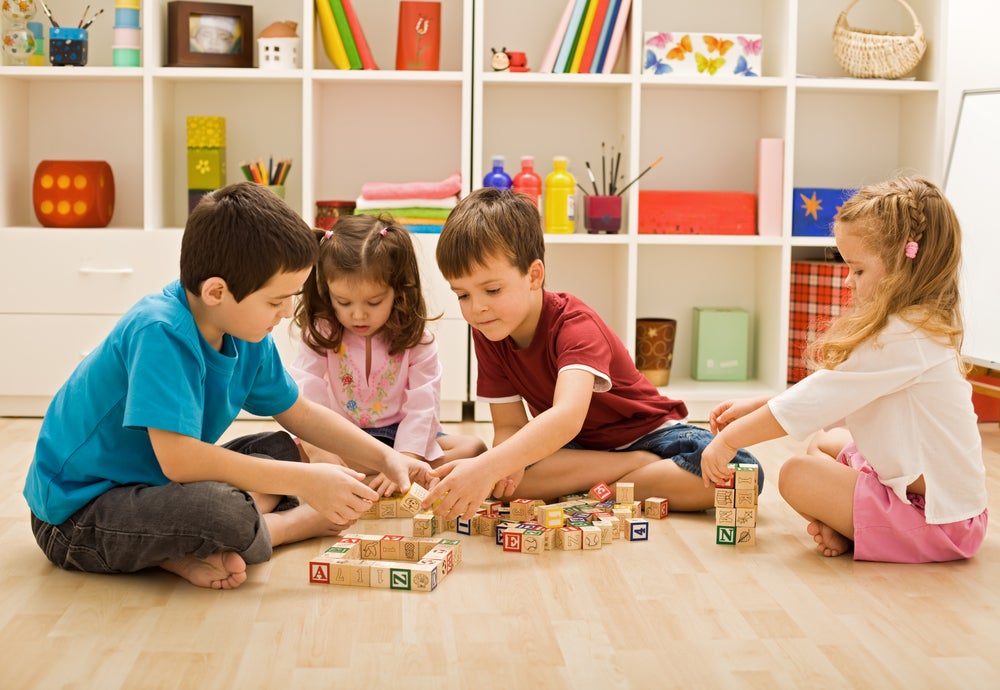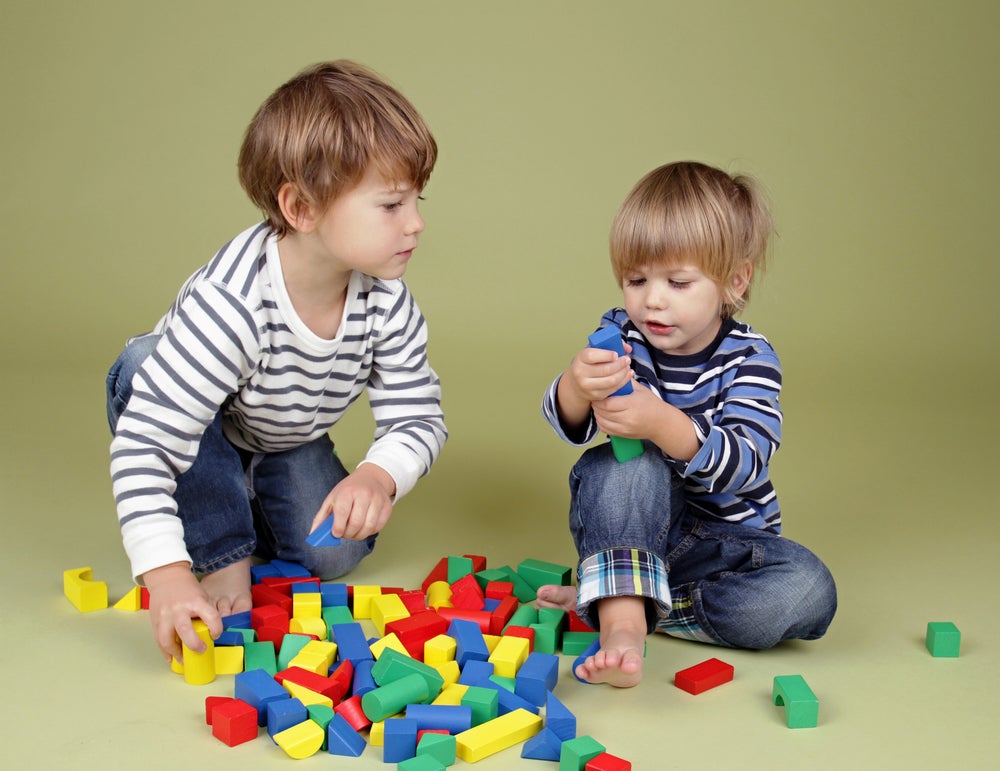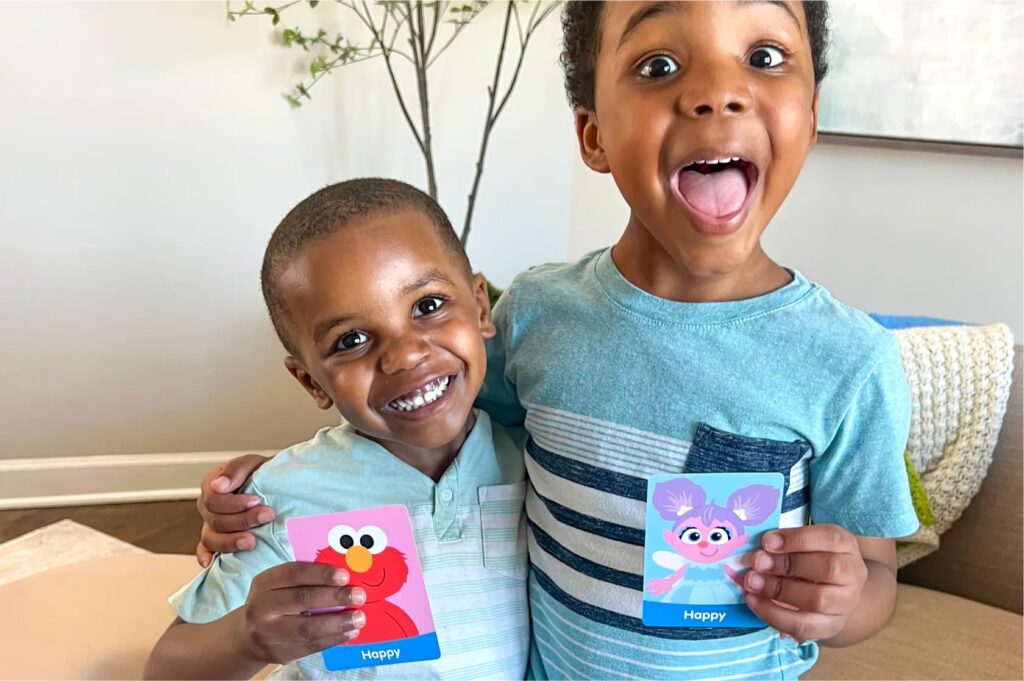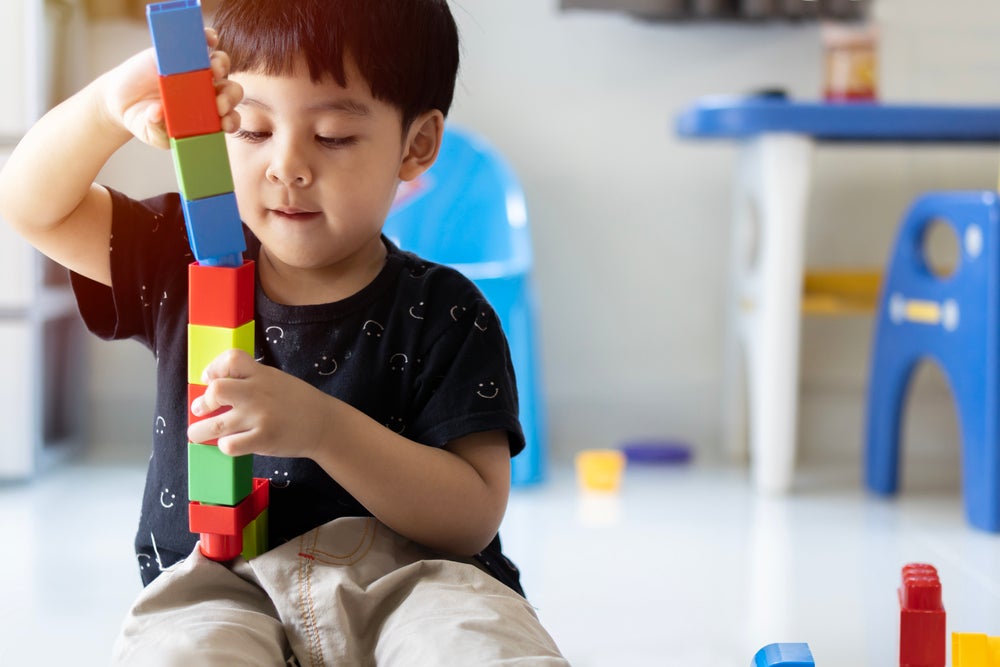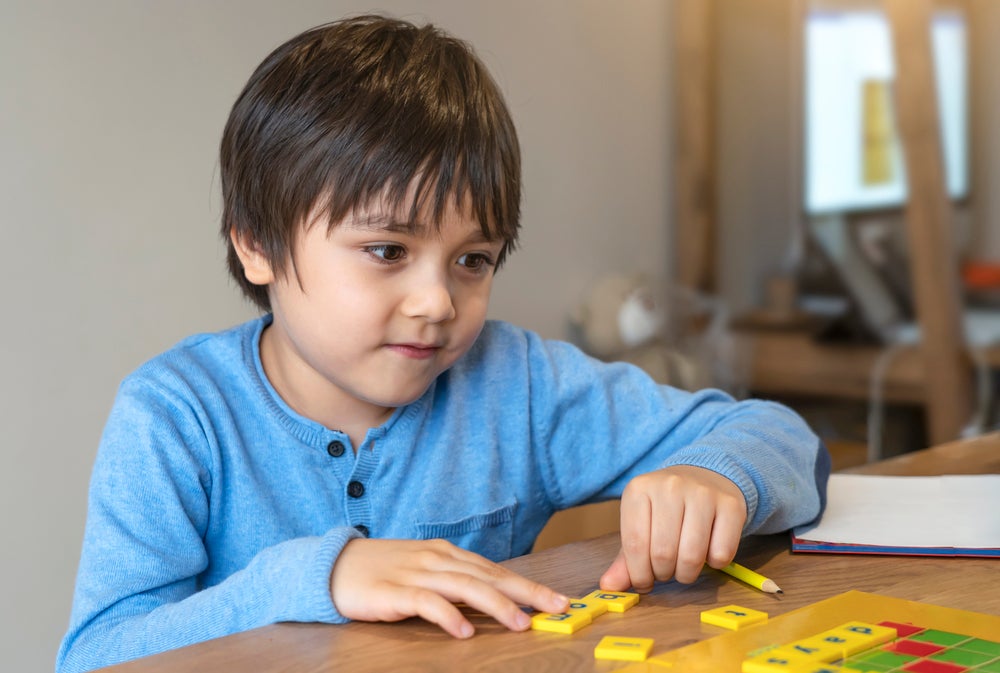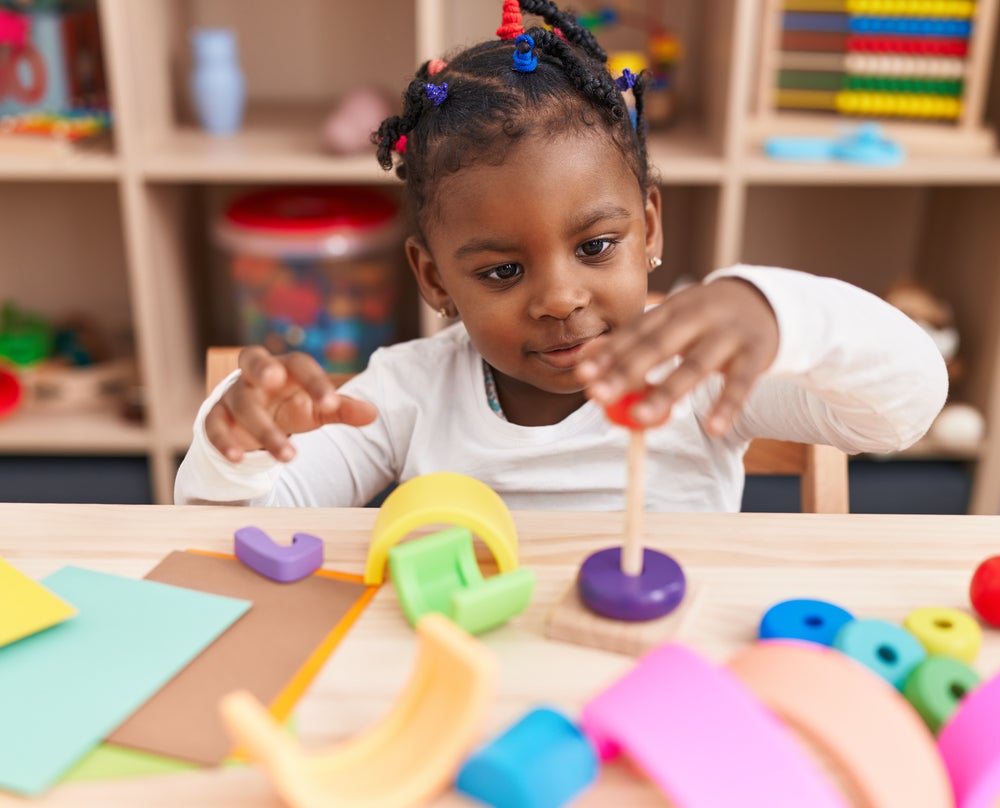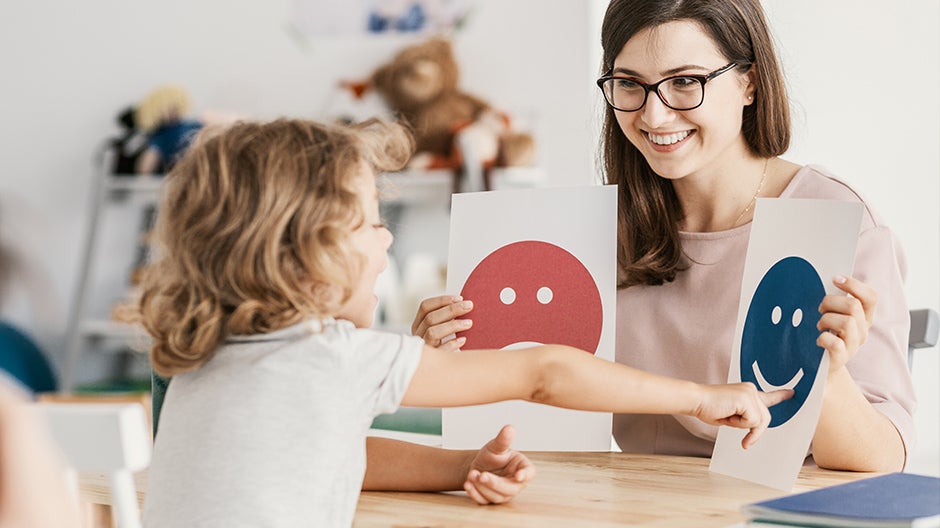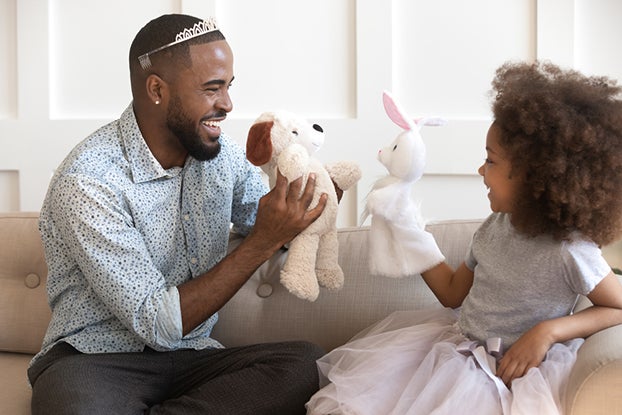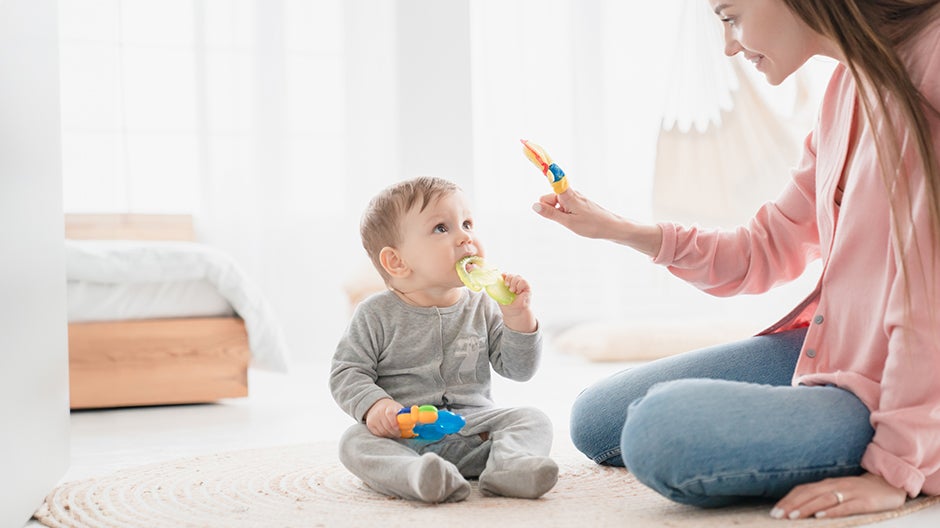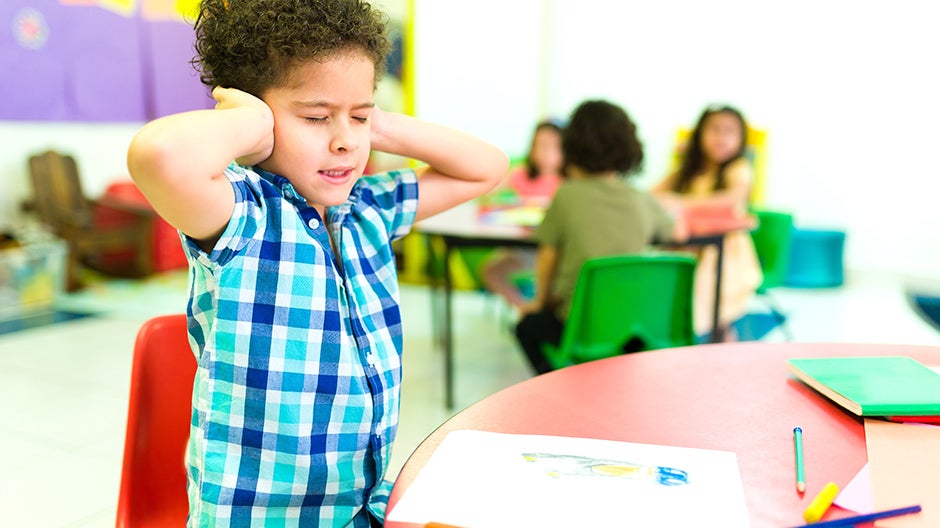We all know kids love to explore and play, but are some ways of playing better than others when it comes to learning through play? How is this style of learning different from regular child’s play?
Our experts at Begin have compiled a comprehensive list of simple ways to get started with learning through play, plus tips to ensure your child thrives while they engage in various styles of play.
Let’s discover what learning through play means, what the benefits are, and how you can easily implement this valuable learning style at home.
What Is Learning Through Play?

While playtime might sometimes come across as unstructured or frivolous, it’s actually an important part of your child’s development and teaches them valuable life skills.
From playing with blocks to learning about balance and determining which shapes fit together to recognizing letters more easily, engaging in play can teach your child a lot about the world around them.
The many benefits of learning through play include:
- Improving communication skills
- Developing problem-solving abilities
- Teaching conflict resolution
- Nurturing creativity
- Encourages relationship-building
- Promoting independence
- Making meaningful discoveries about the world around them
- Motivating exploration
Academic Learning Vs. Play-Based Learning
Academics are the main focus of many early childhood learning programs. With these, teachers develop structured curriculums to help kids learn the alphabet, numbers, colors, shapes, and more.
This means that the adults are the ones who determine the process of learning, timelines, objectives (i.e., learning colors, letters, etc.), and everything else in-between. On the other hand, learning through play involves more child-directed activities.
While learning-through-play experiences can foster numeracy and literacy, they also help children grow holistically. This includes building their confidence, encouraging them to be naturally inquisitive, and furthering their social-emotional development.
Now that you know a bit more about the idea behind learning through play, let’s take a look at the benefits of this learning approach.
Key Benefits Of Playtime
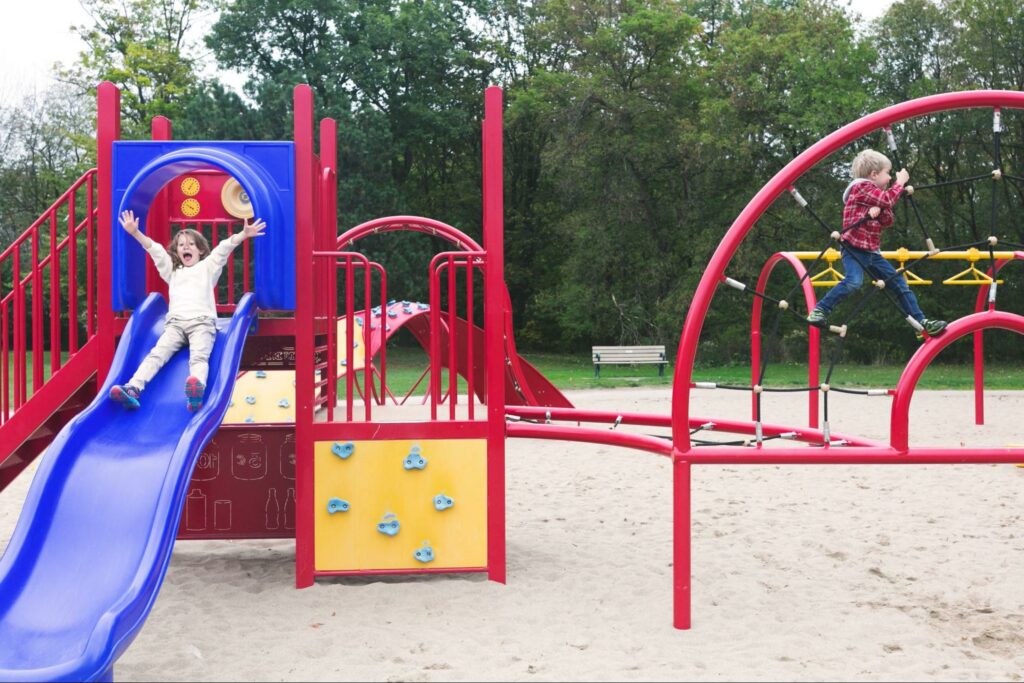
Play Is Fun
When you see kids playing, their smiles and laughter can be infectious. That’s because playing is fun!
Not only does it provide a healthy endorphin release, but it also allows children to think creatively and use their imaginations to go to pretend lands, become different characters, and develop critical thinking skills.
Play Encourages Social Interaction
While there’s nothing wrong with allowing children to play by themselves (in fact, it’s encouraged), there’s something special that happens when kids play together.
They get to communicate their unique ideas to others and listen to other people’s perspectives. In addition, they learn other important social skills, like compromising, teamwork, and so much more.
As they play with others, children have opportunities to work through the challenges and frustrations that may occur.
For example, your child might express things like:
- Why can’t I go first? Tom always gets the first go, and that’s not fair.
- Skipping is so hard. Everyone else seems to be better than me.
- Sarah wants to do it her way, but I have good ideas, too.
By learning how to work through these frustrations and problem-solve with others, your child develops the skills they need to build happy, healthy, and meaningful relationships.
Play Actively Engages Kids
Depending on the activity, children get the chance to touch, hear, smell, or mold objects they’re using during play. They get to practice skills they’ve learned, develop new ones, test out various possibilities, or even discover new challenges.
This combination of using their senses, stretching their minds, and having physical engagement with the activity in front of them helps children learn and develop.
As a result of such interactions, children get the chance to make sense of the world around them.
Important Elements Of Learning Through Play
For playing to actually have the benefits mentioned above, there are a few key elements that need to be present. Let’s take a look.
1) Enjoyment
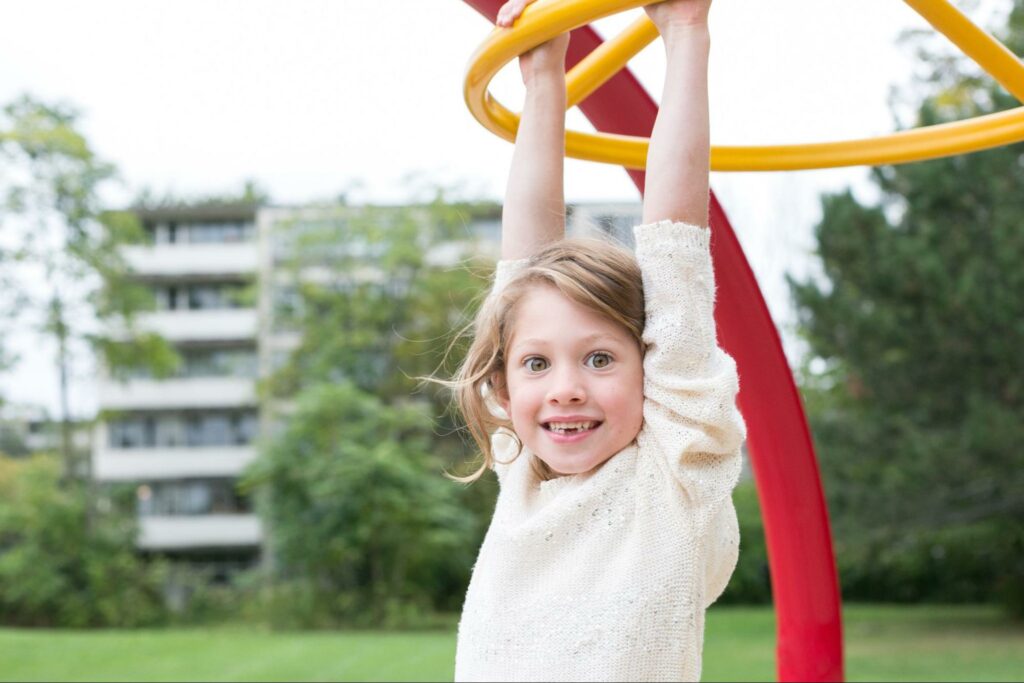
This is probably the most obvious point on our list and reiterates what we mentioned above. But the reason kids love to play is that it’s fun! That’s why play needs to be an enjoyable experience for them.
Of course, there will inevitably be disagreements here and there or challenges to overcome, but overall, children should find what they’re doing pleasurable.
2) Flexibility
Too often, adults get fixated on structured learning and reaching specific outcomes. While there’s nothing wrong with having objectives in mind before starting to play, it’s also essential to be flexible.
This means allowing kids the freedom to explore and discover through their activities.
For example, if, during a painting activity the goal was to teach your child that when they mix their blue and yellow paint, they get green, don’t be upset when they mix in red instead of blue by mistake. Now, they’ve discovered how to make orange!
3) Children Leading
Sometimes, when we as adults initiate an activity, we want to lead our children through it. This is because we often feel that we know what’s best.
There’s nothing wrong with helping our kids figure some things out, but it’s also exciting to see them use their own minds to tackle a particular obstacle they’re facing. Try to give your child the opportunity to lead — let them decide how they’ll play and even for how long.
You can then focus on making sure that everyone involved stays safe (this is especially important if the activity involves sharp objects like scissors) and offer suggestions as needed.
Stages Of Play

Learning through play comes in many forms and stages that will carry your child through their developmental years.
Starting with unoccupied play, this stage usually begins between birth and 3 months of age when children start to learn about their bodies and the simple pleasures of kicking their legs.
Solitary play is the next recognizable stage. You might notice your child using their focus to play alone with toys and their organizational skills to make sense of the activities they engage in. Playing alone is completely normal and necessary for development.
In onlooker play, your child may start to observe other children playing. Their brain is busy learning about how to interact with others.
Similarly, in parallel play, your child might play their own game or activity (like PlayDoh or cars) next to another child who is also playing — they’re playing separately, together.
When your child is ready, they’ll begin to engage in associative play. Here, your child gets to put the social skills they’ve been learning into practice by interacting with others. This might look like sharing materials for a craft project or building structures out of blocks together.
Finally, cooperative play is all about sharing resources and working together to achieve a common goal. This stage of play involves utilizing social skills and establishing rules, which can involve healthy conflict resolution and negotiation skills.
It’s important to note that the stages of play should be used as a guide and not hard-and-fast rules. Just because your child has ‘aged out’ of the solitary play stage doesn’t mean they won’t still enjoy it from time to time as they grow up.
Learning through play is about the engagement and enjoyment your child will experience in the moment rather than aiming for a particular end result — just enjoy the process!
Learning Through Play: Ideas By Type

There are many different ways your child can learn through play. We’ve compiled a list of ideas to get you started!
We’ve divided these ideas into categories based on different types of play, but remember they aren’t mutually exclusive — it’s possible to engage in multiple types of play at once.
These play ideas are great for children playing alone, with an adult, or with other children. It all depends on your child’s needs and what they enjoy!
Physical Play
Physical play involves developing motor skills and focuses on moving your body. Any activity that involves running, jumping, climbing, crawling, or practicing balance counts as physical play!
Try incorporating ball games, chasing balloons or bubbles, dancing to music, or creating an obstacle course in the backyard to encourage physical play among children.
Language Play
Children are developing their language skills every day, so encouraging language play is a fun way to build on what they’re learning.
Language play should begin with verbal play, such as riddles, rhyming games, and making up stories. Then you can move on to literacy-based language play, like what we offer through our HOMER app.
We’ve compiled lists of our favorite writing and spelling games to help you get started enjoying language play! Our Explore Letters Kit is another way to support your child as they develop their literacy and language skills through play.
From developing their imagination to fostering their early writing skills, our Explore Letters Kit acts as the perfect supplement to language play!
Exploratory Play

Children are inherently little explorers, so it’s no surprise that a key type of play is exploratory in nature! This play style is all about your child using their senses to learn about the world around them.
This can be as simple as playing with mud, making slime, creating figures out of PlayDoh, finger painting, or even playing with different textures of food (think squishy pasta versus hard potatoes).
Exploring outdoors with adult supervision is another simple way to get started.
Constructive Play
Constructive play gives children the opportunity to utilize their imagination, fine motor skills, and creativity.
It also provides an outlet for self-expression and teaches children that they can bring the pictures in their minds into reality!
Try drawing pictures with chalk on the sidewalk, building structures out of blocks, creating sock puppets, and using open-ended art materials such as paints, pencils, and paper to see what your child feels like creating.
Fantasy Play
Fantasy play (also called role-playing or imaginative play) is a fantastic way for your child to act out ideas they see in the world as well as make-believe scenarios they create all by themselves.
By incorporating costumes or pieces of material, figurines, puppets, and toy animals, children are free to explore and imagine without fear of judgment.
Fantasy play allows them to learn about various occupations such as doctors and firefighters, societal roles such as parents and caregivers, and fantasy scenarios such as adventures with superheroes and villains.
The possibilities are endless when it comes to fantasy play!
Social Play
Social play involves playing with others. This may be peers their own age, younger siblings, or older adults. It’s important for your child to learn to play with a variety of people and adapt to the needs of others.
This type of play is usually practiced during an additional style of play. For example, while engaging in make-believe play about cooking food or while playing a game of tag, your child will be practicing their social skills along the way.
Utilizing skills such as communication, negotiation, problem-solving, and cooperation is crucial in social play. As children learn and practice these skills, their ability to play in social settings will improve.
Our Explore Feelings Kit can help your child explore these new social skills in a fun, safe way! This specially designed kit provides your child with activities to foster their social-emotional skill development and promotes positive interactions with others.
Challenges Of Integrating Learning Through Play
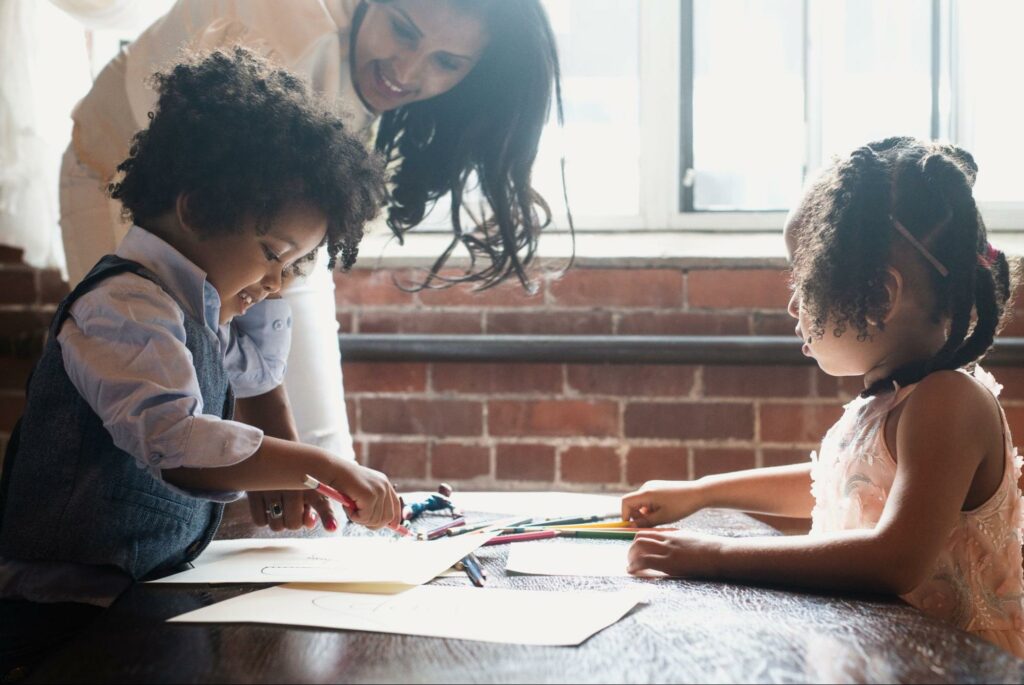
While the benefits of learning through play are numerous, this approach isn’t without its challenges.
Lack Of Understanding
When parents or guardians don’t understand the value of learning through play, they are not likely to encourage their children to participate in it.
Many adults still view playtime for children as having no connection with learning academic concepts. Instead, play is seen as frivolous and taking away time from “real learning.”
While some believe that the traditional way of learning (i.e., placing a worksheet in front of a child and evaluating their understanding) is the best and only way to teach children, this isn’t true.
When children play with blocks, paint, do puzzles, or dress up in costumes, they are building a solid foundation for learning shapes and colors, creative thinking, and many other important concepts.
If play is not encouraged, children may actually lose out on critical skill development.
School Days Without Time For Independent Play
During the week, our children spend many of their waking hours at daycare, preschool, or school. But, unfortunately, many schools don’t have enough time in the day to allow for independent play, aside from recess.
In an ideal world, teachers would be trained in how to instill playful learning into the curriculum, but most of the time this is not a child’s school-day experience. That means the home is the perfect place to create an environment friendly to learning through play.
If you’re short on time or unsure of how to create a lineup of appropriate games or activities, our HOMER app is the perfect solution!
Designed for children up to three years old, this app is packed with lots of games, stories, and songs to help build a strong foundation for many important skills, such as knowing colors, shapes, the ABCs, and more.
Now that we’ve emphasized the importance of learning through play and discussed some of its challenges, let’s take a look at a few quick tips for making the most of this time!
Quick Tips For Learning Through Play
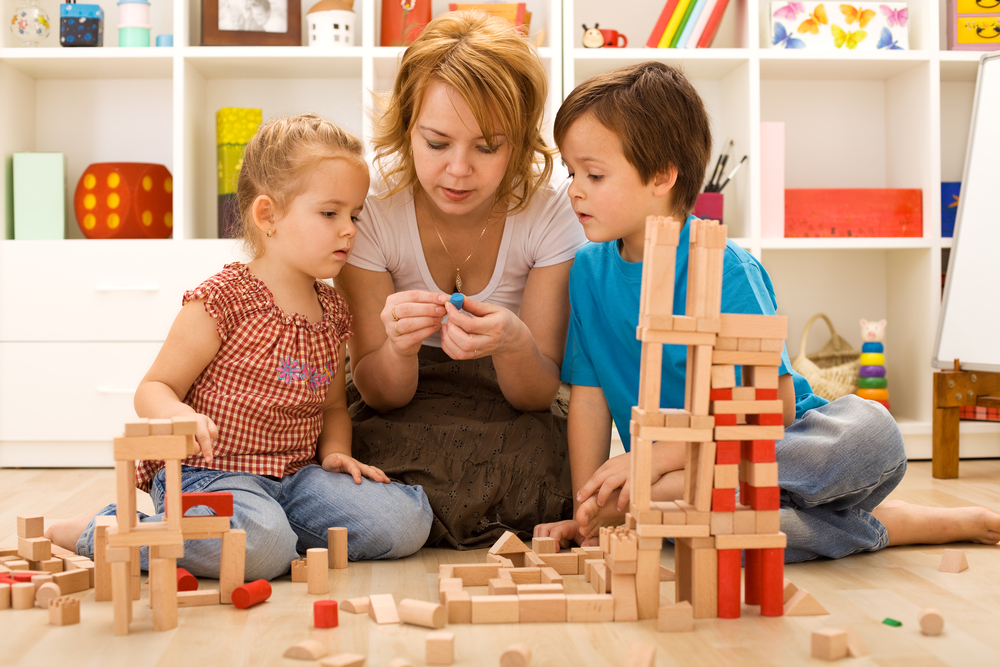
Show Interest
Showing genuine interest in your child’s play activities is a great way to encourage further positive play experiences.
Talking to your child about their play preferences, asking questions, and getting involved when your child wants you to join in can show your child that you’re interested in and supportive of their play efforts.
Playing together can also be great for your whole family! It can help build stronger relationships while your child is learning and having lots of fun.
Offer Support
You can set your child up for success in learning through play by offering support during challenging situations, such as difficulty joining in with groups.
Navigate these challenges together by intervening only when necessary, discussing your child’s feelings, and providing strategies to approach situations differently in the future, such as offering to share with others.
Follow Their Lead
When it comes to making learning through play a positive experience, it’s important not to push your child into activities they may not feel ready for.
For example, if you’ve noticed your child isn’t taking an interest in playing with other children just yet, that’s OK! They will begin to observe and eventually participate in activities with others when they feel ready.
It’s equally as important to let your child make their own decisions when it comes to the type of play activities they want to engage in. If your child enjoys exploring more than they enjoy fantasy play, let them explore.
Also, remember that children’s interests change. For instance, today, they may take an interest in painting and want to do it the whole day. Then, next weekend, they may be done with painting and want to build a fort underneath the coffee table.
So, don’t worry too much if your young learner isn’t showing interest in particular activities. The interest can develop over time. In the meantime, give them the freedom to explore what they love right now.
Give Your Child A Dedicated Space
Children know how to make a freshly cleaned room look like a tornado just hit it! As a parent, it can be frustrating to let your child continue playing and having fun while watching your home being turned upside down.
To help, designate a specific room or space (e.g., a corner in the living room or outside) for your child to play in. Then, let them play and explore whatever activities they wish within that space. They can draw, do a puzzle, dress up, or even build that fort!
Having a play environment or a dedicated space where your child is free to use their imagination is a great way for them to learn and develop new skill sets.
Learn Through Play With Begin
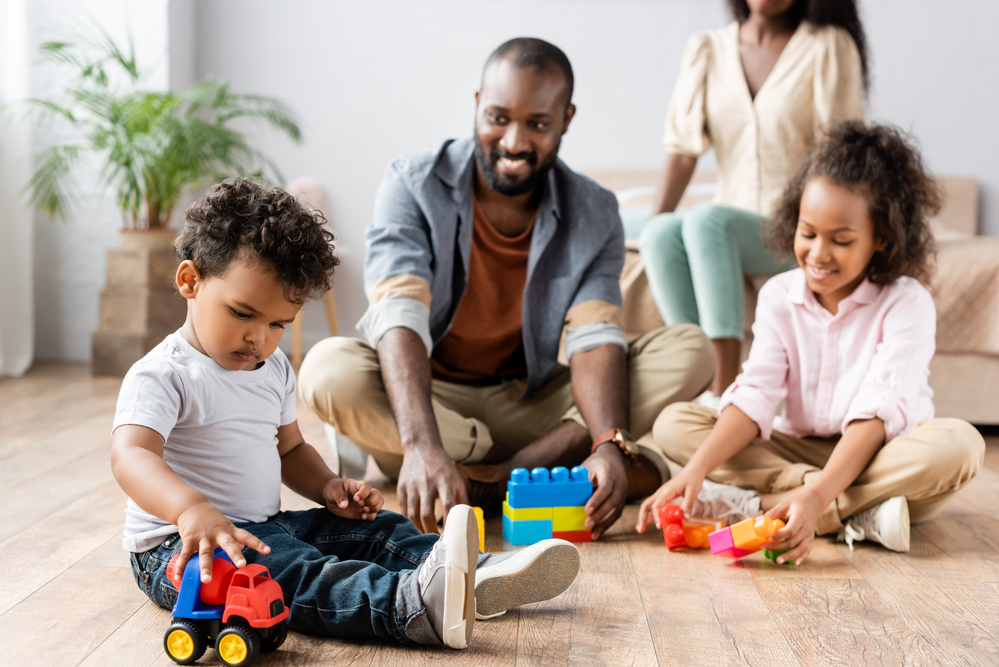
Learning through play is an important part of your child’s skill development and can encourage creativity and imagination as well as learning.
By implementing the play ideas above — from language play to fantasy play and everything in-between — your child will be having so much fun they won’t even realize they’re learning valuable lessons along the way! The HOMER app uses this idea to keep kids engaged and learning — just 15 minutes a day can lead to a 74% increase in early reading scores!
The Learn with Sesame Street app is another effective tool that uses play to help kids learn and develop their social and emotional skills. With the help of their Sesame Street friends, kids learn how to express their emotions, empathize with others, and create healthy relationships. Explore the Learn with Sesame Street app today!
Happy playing!
